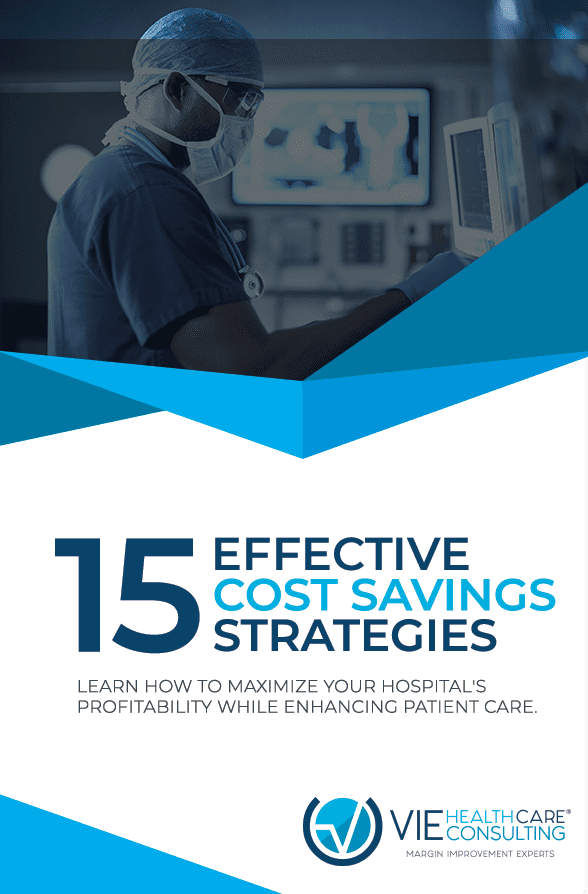Building Analytics Competency
Profiting from analytics is only doable if you have systems in place to ensure your analytics and data will lead you closer to your goals.
When we asked respondents to the our Healthcare Leadership Survey what the number one area was in which they need to improve to increase profitability, their top choice was “effective analytics,” cited by 43.7% of respondents as the top method.
Building analytics competency can help your organization harness “big data” to create actionable insights, set your vision for the future, improve patient outcomes, and reduce time to value. Click To Tweet
Utilizing these data as a core asset that you can leverage to support every organizational goal—including financing, reimbursement, recruiting, and (most importantly) patient care—is key. VIE Healthcare helps hospitals harness the power of analytics and increase efficiency in patient care, operational effectiveness, and financial and administrative functions; based upon our experience, we’ve provided steps you can take today to make profitable improvements in your analytics.
Here are 11 ways that you can improve—and profit from—your analytics:
1. Measure. What gets measured gets improved. Olympians and top professional athletes consistently measure their performances to be the best—to perform at its highest level, your hospital should follow their example.
2. Ask for and capture the right data. A survey by Avande showed that 62% of C-level executives complained of irrelevant data, yet lacked the information they needed to make good decisions. Remove unnecessary or lower-impact data and focus on what is important, ensuring that you have the data you need to make good decisions.
3. Ensure data accuracy. How do you know that your data are accurate? Validate your sources by “measuring small” and then expanding your focus. You will be surprised at what you see or, more importantly, what you don’t see.
4. Invest in training. Your staff members are continually asked to “do more with less.” Provide them the healthcare-specific training they need to accomplish this feat. Educational workshops enhance your team’s performance and strengthen morale.
5. Coach. Even the best-trained people need help understanding the ever-expanding data that bombard them daily. Make sure that your personnel know what the data mean, how they affect your organization, and how staff members throughout your organization should act upon the data.
6. Evaluate your systems. How many independent systems operate in your organization? Are they integrated effectively? Answering these questions is critical to your profitability.
7. Eliminate manual data entry. How much of your current process relies on information recorded on paper, with staff inputting those data into one or more systems? The more manual the process, the greater the chance the data are wrong.
8. Hold the systems accountable. When was the last time your supply chain team was trained by their materials management system representatives or the clinical team on their OR system? Education and training must be consistent.
9. Push for real-time data. See the trends happening immediately on a monthly basis, rather than relying on data that are six months to a year old. Doing so can reveal opportunities that will produce significant savings for your organization.
10. Evaluate Zero-Based Budgeting. Definition: A method of budgeting in which all expenses must be justified for each new period. This type of budgeting eliminates the guesswork in expenses and allows quick analysis of trends.
11. Conduct a Gap Assessment. Have an independent assessment performed on analytic skills and accuracy of data captured, and the measurements performed.
What’s another method to ensure accuracy and profit from analytics?



